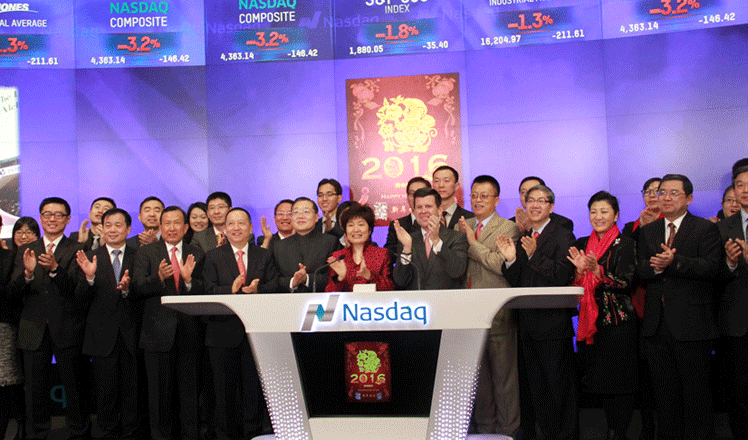Digital China and its implications for Europe
Updated: 2016-02-12 16:34
By Romano Prodi And David Gos Set(China Daily USA)
|
|||||||||
Chinese policymakers have not only integrated the various dimensions of geopolitics, but also rightly paid great attention to the rapidly evolving domain of cyber-politics. And by almost exclusively focusing on what it perceives as the limitations and imperfections of the Internet in China, the West has not yet fully realized the significance of the Chinese digital transformation. At the intersection of China's global projection and of its quest for innovation, digital China is one of the most significant stories of our time.
China is currently in a quest for relevance, from biotech to the Internet, and from nanotech to aeronautics and space exploration. More generally, the ambition not to be a passive spectator in the West-led globalization but to stand as a source of modernity is one of the defining elements of the Chinese "renaissance". China may have missed the Industrial Revolution, but it is a co-architect of the Information Age.
Cyberspace, like the post-World War II system of international relations, is bipolar, not structured around Washington and Moscow, but articulated around the United States and China. The current digital bipolarity is reflected in the competition between Internet companies: Google, Twitter, YouTube, Amazon, eBay, Uber, Expedia and Apple Pay are the icons of digital US while Baidu, Tencent's WeChat, Youku, JD.com, Alibaba, DidiKuaidi, Ctrip and Alipay symbolize China's cyberspace. In a sense, global cyberspace is a tale of two Internets.
Today, the two top languages of the World Wide Web are English (851 million users) and Chinese (704 million users), but with the rising penetration of the Internet in China (around 50 percent Internet penetration in China against 87 percent in the US), Mandarin might be soon the Internet's No 1 language.
Some would argue that despite the quantitative dimension of the Internet, China has been qualitatively a mere follower of the Silicon Valley. However, by choosing to protect the development of its giants, China has not only been able to narrow the gap very aptly, but also its existing digital ecosystem puts it in a position to genuinely innovate in the infrastructure and the systems of cyberspace.
The European Union, however, finds it satisfying to be the user of tools developed by American companies even if such dependence is an incredible long-term weakness from a commercial and security perspective.
Alibaba, the e-commerce giant created 16 years ago by Jack Ma, is increasing its presence in the European Union in a move which will immediately benefit Sino-European trade relations. However, when European companies export to China through trading platforms conceived by Alibaba they become dependent on a new kind of vehicle upon which they have no direct control.
A long-term view of European interests in the Information Age commands to put the development of an ambitious European digital strategy at the top of Brussels' priorities. In the 21st century a power which ignores the centrality of cyber-politics condemns itself to irrelevance.
Europe would deserve better than linguistic variations on the Google main theme and should be able also to grow e-commerce platforms capable of competing with Amazon or Alibaba. In that context, the European Commission's team in charge of the Digital Agenda of the EU should certainly work at the regulatory level for the "Digital Single Market" but it should also help to shape the conditions for the emergence, beyond startups, of European digital global businesses.
Any long-term European digital strategy has to take into account the creativity of the Silicon Valley but the vision of a "New Digital Silk Road" would allow Europe to keep pace with the evolving Chinese cyberspace. While cyber-mistrust is not an issue in the relations between Brussels and Beijing, a converging Sino-European Internet has to complement the Belt and Road Initiative's connectivity.
The discovery of America marked the beginning of "Globalization 1.0" and, equipped with the instruments of the Industrial Revolution, Europe played a preeminent role in world affairs. At the dawn of "Globalization 2.0", an expansion into unlimited e-territories is combined with the injection of new digital technology into the production process.
Could the civilization which was at the center of "Globalization 1.0" end at the periphery of "Globalization 2.0"? Even if it is too early to tell, Europeans should nonetheless indulge in some introspection.
If Europe does not find the political wisdom to deepen its integration and the strength to fully enter the Information Age as one of its co-creators, it would risk, after a gradual marginalization, ending at the periphery of a new global order which would have been shaped without her effective participation.
Romano Prodi is former prime minister of Italy (1996-1998, 2006-2008) and former president of the European Commission (1999-2004), and David Gosset is director of the Academia Sinica Europaea at China Europe International Business School and founder of the Euro-China Forum and of the New Silk Road Initiative.
(China Daily USA 02/12/2016 page17)
- General strike against pension reform brings Greece to standstill
- Madrid airport sounds alarm after bomb threat on Saudi plane
- Obama proposes new oil tax to fund clean transportation
- UN special envoy announces temporary pause of intra-Syrian talks
- Taliban kill 10-year-old hailed as militia hero
- Obama slams anti-Muslim rhetoric during first visit to US mosque

 Spectacular Harbin snow sculptures draw holidaygoers
Spectacular Harbin snow sculptures draw holidaygoers
 First Capitol billing for Lunar New Year
First Capitol billing for Lunar New Year
 All you need to know about China's Spring Festival temple fairs
All you need to know about China's Spring Festival temple fairs
 Special souvenirs
Special souvenirs
 Opening bell on Chinese New Year's Day
Opening bell on Chinese New Year's Day
 The world celebrates Spring Festival with China
The world celebrates Spring Festival with China
 Ditan Park temple fair embraces Chinese New Year
Ditan Park temple fair embraces Chinese New Year
 Xi Jinping grieves over Taiwan quake, vows aid
Xi Jinping grieves over Taiwan quake, vows aid
Most Viewed
Editor's Picks

|

|

|

|

|

|
Today's Top News
National Art Museum showing 400 puppets in new exhibition
Finest Chinese porcelains expected to fetch over $28 million
Monkey portraits by Chinese ink painting masters
Beijing's movie fans in for new experience
Obama to deliver final State of the Union speech
Shooting rampage at US social services agency leaves 14 dead
Chinese bargain hunters are changing the retail game
Chinese president arrives in Turkey for G20 summit
US Weekly

|

|








